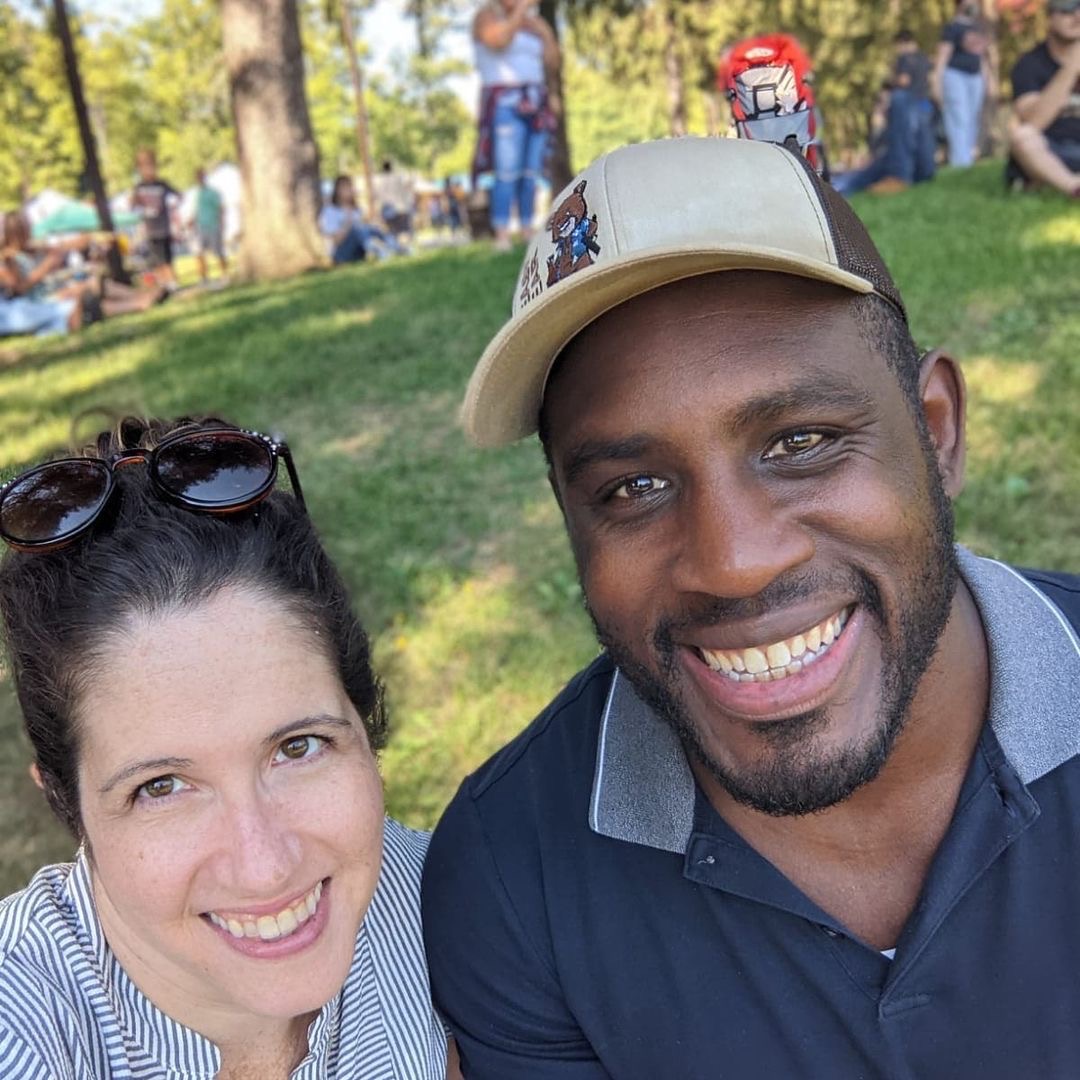A good relationship can actually help you live longer.1
But if you have a lack of patience, you’re almost always the one who loses.
Impatience robs you of your ability to put aside your emotions and impulses when critical thinking would better serve you.
I grew up in an environment where, if you overreacted, on the wrong day and in the wrong situation, that was a wrap for you.
Now, lacking patience in a relationship won’t necessarily put you in immediate physical danger (though it could if you choose the wrong woman). But it will almost certainly strip you of your mental health and emotional well-being and make your life unnecessarily difficult.
Here’s a truth that’s becoming more and more obscure—men and women are fundamentally different in about every way that matters in relationships.
How well you manage those differences is directly tied to how well you can build a healthy relationship that makes you both better. The only way to manage those differences is with patience.
Why you’re struggling with impatience
Men routinely lack patience in relationships because:
- You bought into common falsehoods about relationships
- You don’t have patience in any other parts of your life
- You’re afraid to communicate, or don’t know how to
- You value emotions and ego over logic and solutions
- You don’t know what you want
A lot of men have the misconception that you have to react with a show of force when confronted. I find that firm patience is more respected in a healthy relationship because it de-escalates while letting you maintain a position of strength and calmness.
You are more likely to get the result that you want and less likely to make things worse or play yourself out of character.
In this article, you’ll discover some fundamental tips to become more patient in your relationships.
Fair warning though…It’s not what they told you in school. And it won’t manifest any Disney fantasy you might be holding onto.
What it will do, however, is help you build a lasting, more fulfilling relationship.
Focus on yourself
I’m starting here because controlling your reactions starts with intentional self-reflection and self-improvement. Under perfect scenarios, we’re all the picture of patience. In a relationship, it’s easy to lose patience when you butt heads over a point of view, are baited into meaningless arguments, or experience an inconsiderate action.
People usually become impatient when they feel like they have no control over their environment. The only way to control your emotions when all hell breaks loose in a relationship is to focus on the only thing you can control, which is yourself.
There are always factors outside of yourself at play. Prioritize your own standard of a successful life and constantly make sure your relationship fits that standard. The next time the woman you’re with decides to turn a disagreement into an argument, instead of reacting emotionally, ask yourself, “How does this serve my life?”.
This moment of self-reflection does two things for you:
- Gives you the perspective and direction needed to take the lead
- Allows you to unemotionally weed out anything that’s not congruent with who you are and where you’re trying to go
When you do this, you will…
Immediately shift from your “Lizard brain” of basic survival and primitive emotion, which makes you feel attacked, to…
Better tools of logic and reason, which allow you to patiently enforce a boundary or explore any validity of her grievance.
Prioritize the relationship, not her
Chris Rock has a bit about the pointlessness of trying to make a woman happy in a long-term relationship. I’ll paraphrase the punchlines, but he basically says:
When you’re always working and providing, she complains that you’re never home. When you’re always home, she complains that you’re smothering her.
Jokes aside, the point is that it’s a fool’s errand to center the relationship around making her happy. A fool’s errand that will absolutely destroy your patience. Because when you focus on momentary peace over long-term satisfaction, you’ll always keep paying for the same mistakes.
Prioritize the relationship and make doing what’s best for the relationship the ultimate goal over individual, momentary happiness.
When I’m in a relationship and see that we’re beginning to deviate from this goal, I immediately do whatever I can within reason to steer the relationship back toward favorable territory.
I definitely don’t try to read her mind, because that is, at best, an exercise in futility and at worst, an exercise in frustration.
When your focus is to improve the relationship, it takes a lot of the ego out of it for you both. Your patience remains intact because you’re no longer feeling manipulated or misled.
Focusing on the relationship over how you both feel in the moment also gives you a standard by which to measure your relationship. Setting clear boundaries becomes easier and you discover better ways to handle conflict. Having a standard to live by is also how I learn to set boundaries for how I expect others to treat me.
You can read more here about how I learned how to stand up for myself in practical life situations.
Make patience a lifestyle
Unless you build a lifestyle that supports patience everywhere, you’re going to remain a prisoner to emotional triggers and impulses whenever your patience is tested.
Patience is a muscle. And like all muscles, if you want to become strong, you have to train regularly.
Here are some practices that can help you become a more patient person:
- Eliminate or limit social media so that you’re less reactive and more attuned to your own thoughts
- Brainstorm plans for your life so you can prioritize and categorize the big and small matters
- Journal your thoughts to work through past traumas and hangups
- Practice yoga so you can recognize when emotions arise in your body and learn to let go
- Take time out to celebrate and appreciate yourself
- Practice meditation to help with calmness, stress relief, and decision making2
- Use prayer and affirmations to train faith and belief in a purpose larger than yourself.
Work your body to work your mind
Every grown man should be in a sport or activity that trains the body.
In fact, men that train experience lower stress hormones like adrenaline and cortisol.3 A reduction of these hormones can make you more patient, less fearful, and less reactive. Working out also produces neurochemicals that help you think your way through problems:
- Neurotransmitters that help your thinking
- Endorphins that improve your mood
- Endocannabinoids that cause euphoria and block pain
Exercise trains deep breathing, which is essential for patience and calmness. The slow grind, anti-instant gratification path of improving your body builds the ability to slow your breathing and thinking while pushing through adversity.
These vital seconds of clarity teach you to notice your emotions before you react to them. You will create immeasurable patience and discipline that you can carry into every other area of life.
A sedentary lifestyle makes for a lazy body and mind that don’t work optimally. Men who sit down too much and aren’t active also lose testosterone.4 You don’t have to become a bodybuilder overnight, and a little bit of consistency with your health care goes a long way.
The key is finding a physical activity that makes you better and that you’ll actually stick with. Weight training, martial arts, and high-intensity interval training (HIIT) are great choices for any man wanting a strong body and a peaceful mind because they require you to work through stress and adversity.
Boxing is still my physical outlet of choice, even though I’m retired from professional competition. Read up on how I’ve used boxing to transform my life for over a decade.
Wrapping up: How to be patient in a relationship
A good relationship can inspire you and make you better. A bad relationship can ruin you. It takes patience and strength in your love life to create the healthy relationship you want.
Remember this when learning how to be patient in a relationship:
- Focus on yourself and set a standard for your life
- Prioritize what’s necessary in the relationship over how either of you feels in the moment
- Create habits to support living more patiently
- Work on your body to learn the rewards of delayed gratification
Get Your Life Together With The Essays of Power
I don’t know you, but I know you.
I know that you’re tired of feeling weak, being a victim, and having no control over the direction of your life.
I know you because I was once you.
I used to be stuck on the hedonistic treadmill of mediocrity. Always drunk, always broke, and always looking for the next piece of cheap entertainment and distraction.
Then one day, I changed my entire life around.
I took responsibility for my personal development and started living the best life I possibly could. I learned how to:
- Live with purpose
- Think with clarity
- Face the my demons
- Fix my finances
Unlike a lot of other motivational gurus, I’ve been to the bottom and I clawed my way back out. It wasn’t easy and I wasn’t sure if I’d just become another statistic along the way, but I think I have made tremendous progress.
I learned the hard way, but I can break it down so you can learn it the easy way…
Get The Mind And Fist Essays Of PowerReferences
Harvard Medical School. Harvard Health Publishing. Strengthen relationships for longer, healthier life. January 18, 2011. (accessed March 28, 2022) ↩
Sai Sun, Ziqing Yao, Jaixin Wei, and Rongjun Yu. National Library of Medicine. Calm and smart? A selective review of meditation effects on decision making. July 24, 2015. (accessed March 28, 2022) ↩
Harvard Health Publishing. Harvard Medical School. Exercising to relax. July 7, 2020. (accessed March 28, 2022) ↩
Vann, Madeline R. Everyday Health. 6 Ways You’re Ruining Your Testosterone. July 23, 2015. (accessed March 28, 2022) ↩




